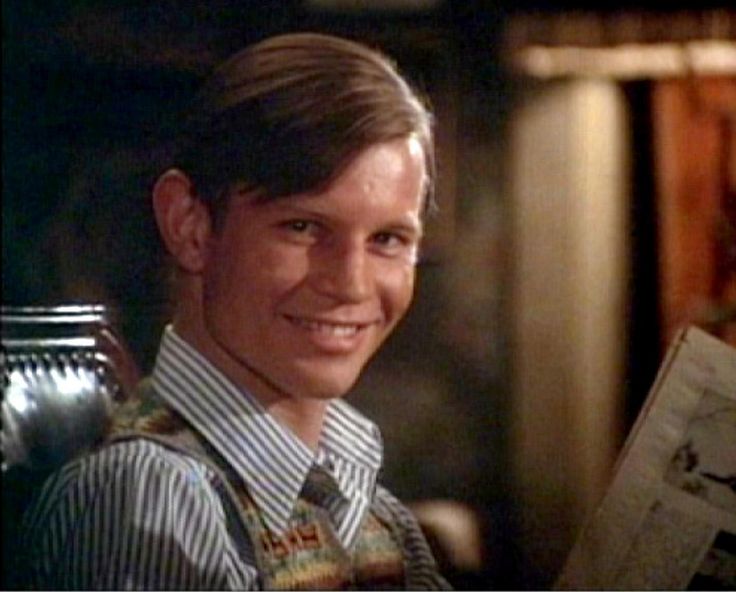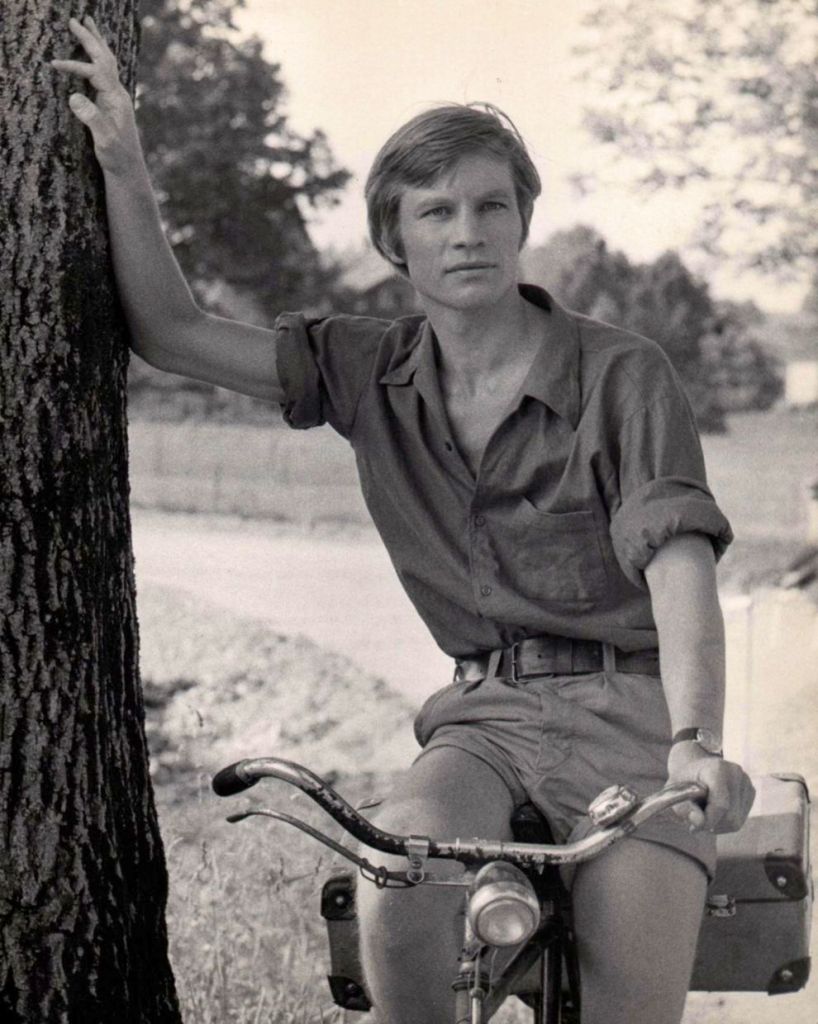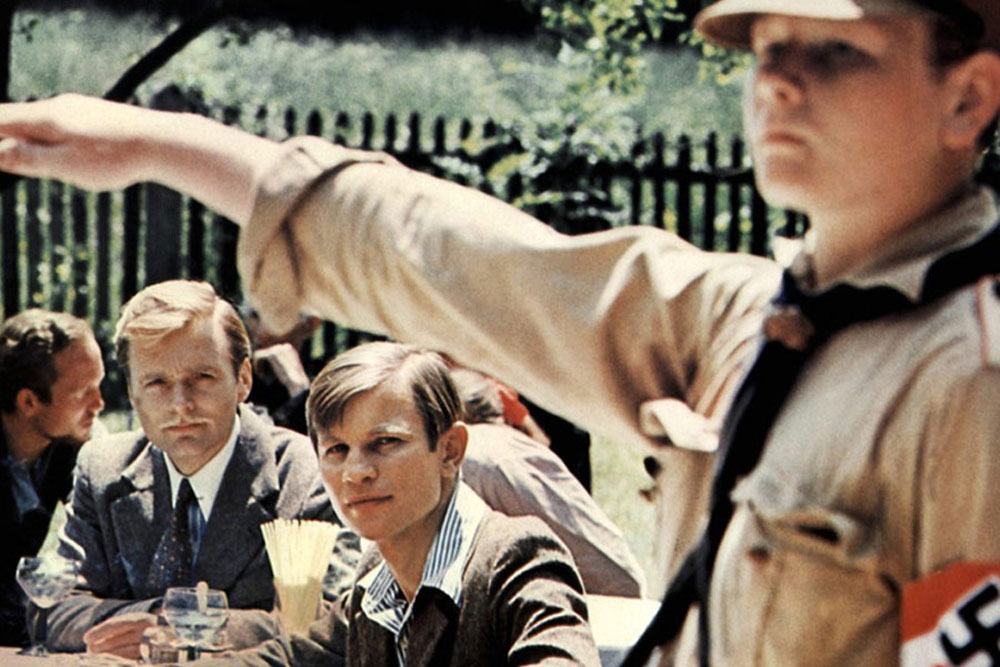Ah, Cabaret.
I first became aware of this movie from commercials on television, and it looked very weird to young Greg. I had no idea what the movie was about, other than it was a musical; starred Liza Minnelli; also had the gorgeous Michael York in the cast; and seemed to be set in old pre-Nazi Germany. It also came out in the same year as The Godfather, which sucked all the air out of the year when it comes to film. I had also read that book that year because of the movie…which also got me interested in Marlon Brando, which is a whole other entry. (Not to mention the sex scenes, which were really confusing in a lot of ways…especially Lucy Mancini’s over-large vagina.) But Liza was everywhere that year, too–every talk show, had her own special “Liza with a Z”, magazine covers and newspapers and periodicals like you wouldn’t believe.
I had no clue what the plot was, other than decadence and debauchery?
I remember asking a friend that year if she knew what Cabaret was about–her parents were European immigrants from after the war; her father was Czech and mother German–and she told me her parents had seen it and her mother said, “It’s all about homosexuals”, which naturally got me incredibly interested in the movie. I finally saw it several years later when it aired on television, but everything queer was sliced out of the movie and it was disjointed and didn’t make a lot of sense, so I thought well, that was shit, how did it win all those Oscars?
Because of course, all the queer stuff has been excised from the movie; the movie was basically castrated and to me, seemed like nothing more than a vehicle to move the movie along to the next musical number–many musicals are like this, so I really didn’t understand what the big deal was about this one.
A few years later, I caught the original uncut version on HBO…and have been a fan ever since.

Cabaret never should have been sold to television for airing because it had to be gutted to make it ready for prime time. I only hope no one involved with the film saw that version of it, but it really was a desecration.

By the time I saw the movie as Bob Fosse originally intended it to be seen, I had become aware of the source material: Goodbye to Berlin by Christopher Isherwood, an autobiographical novel about his experiences in Weimar Berlin and witnessing the rise of the Nazis–and how their malevolence was poisoning German society and culture. It had been adapted for the stage by John Van Druten as I Am a Camera (which is the opening sentence of the second paragraph of the book), and the play was also filmed, starring Julie Harris, who may have played Sally on stage, too. I Am a Camera was adapted into the musical Cabaret, but significant changes were made from the stage version of the musical in adapting it for the screen–and the screen adaptation also wound up causing the stage version to revised, remodeled, and reinvented as well. (And to make things even more confusing, Isherwood later wrote a memoir about that time period in Berlin called Christopher and His Kind, which was also filmed.)
I had not seen the earlier film, nor had I read the book when I saw the uncut version of Cabaret.

And you really couldn’t go wrong casting Michael York in the 1970s. Stunningly handsome, and that velvety voice that just dripped syrup.


I rewatch the film every now and then. I went through an Isherwood phase in the late 90’s/early aughts, when I read everything he wrote, and I enjoyed them all. And when I see some political movements today (hello, MAGAts!), Cabaret is never far from my mind.
It’s astonishing that the film was even made, given that homosexuality was still considered a mental illness in 1972, and the film didn’t judge. It simply presented these alternative sexualities as normal, and while the times themselves weren’t normal, there was also a very strong sense that the Weimar period–which is endlessly fascinating, which is one of many reasons I love Babylon Berlin so much–that filled the German political vacuum between the wars wasn’t very different from the twenties everywhere else, either; a time when the society and culture rejected the old, more conservative times that led to the first war, and everyone just wanted to have a good time because so much was misery. (I often wonder how much the American Stock Market crash of 1929 had to do with the rise of fascism in Germany; it was the economy, after all, that really caused the problems, and wasn’t the global economy heavily impacted by the collapse of Wall Street? We never realize how what happens in our country affects the rest of the world, because the United States is just as narcissistic as the convicted felon the Republicans are running.)
But the underlying message of Cabaret is one that is hard to miss: that living in your own bubble and ignoring the world outside is precisely how garbage like the Nazis rise to power…the assumption that someone else will do something to take care of it, and we’ll just keep having fun. In the late 1980s and early 1990s I thought we as a country we’re headed down that path; the unholy marriage between the right wing and evangelical christianity (I will never capitalize that C because cults don’t deserve that respect) certainly made it very clear to me that there was a very large segment of the American population that would be more than happy to put all racialized people and queer people into death camps. (I even started toying with the idea for a novel about that very thing; I still think about that idea A LOT, and even more so since 2016–which is also when I started rewatching Cabaret again on a more regular basis. Cabaret, and Bob Fosse’s vision of what it should be, was very powerful; and it changed the face of what movie musicals looked like and could be, and has influenced stage and screen musicals ever since. It’s a stunningly shot film, and now I can say that I understand why Fosse won the Oscar instead of Francis Ford Coppola for The Godfather; both films are masterpieces, but Cabaret was more “showy,” and that always wins over diligent and detailed craft.
And no, the movie isn’t “all about homosexuals”–even though there’s a minor character who is a trans woman; the main character is gay and bi-curious, and Max, Sally’s other love interest, is also bi and sleeps with them both cheerily. That was VERY avant-garde attitude to have in a 1972 Hollywood movie made for American audiences.
I wonder how seeing it on the screen in 1972 might have impacted me? But I also can’t imagine my mother and sister sitting through it, either.
Cabaret is a must-see if you’re interested in queer film–or great American cinema, for that matter. And I will judge you for not seeing it. In fact, I’m doing that right now.